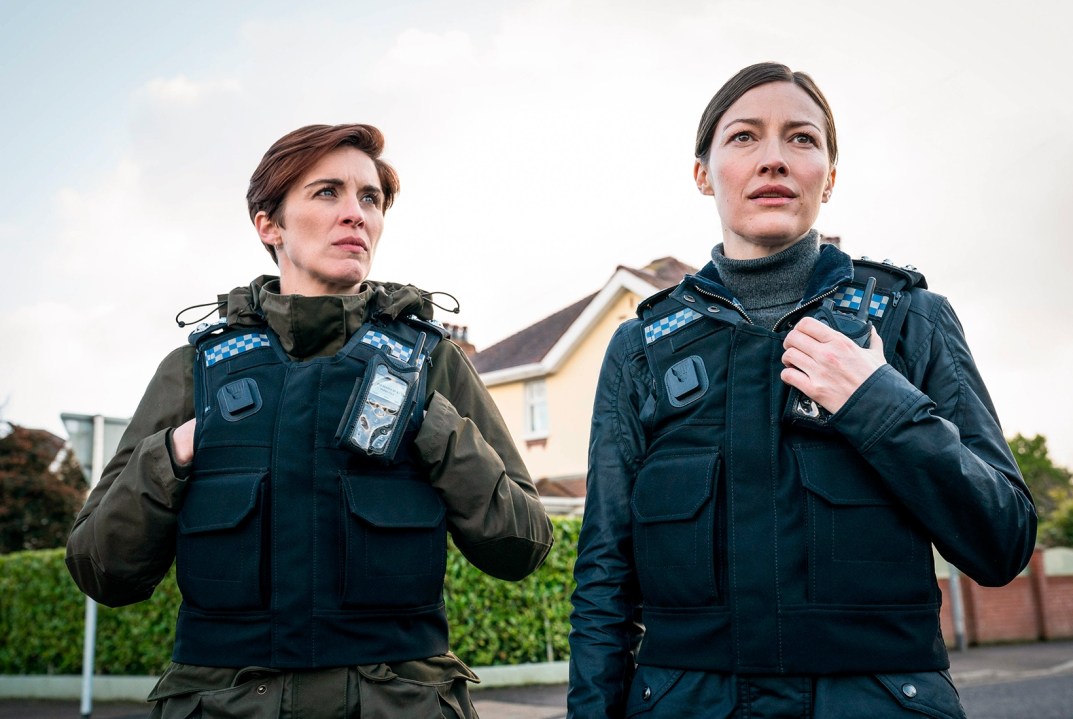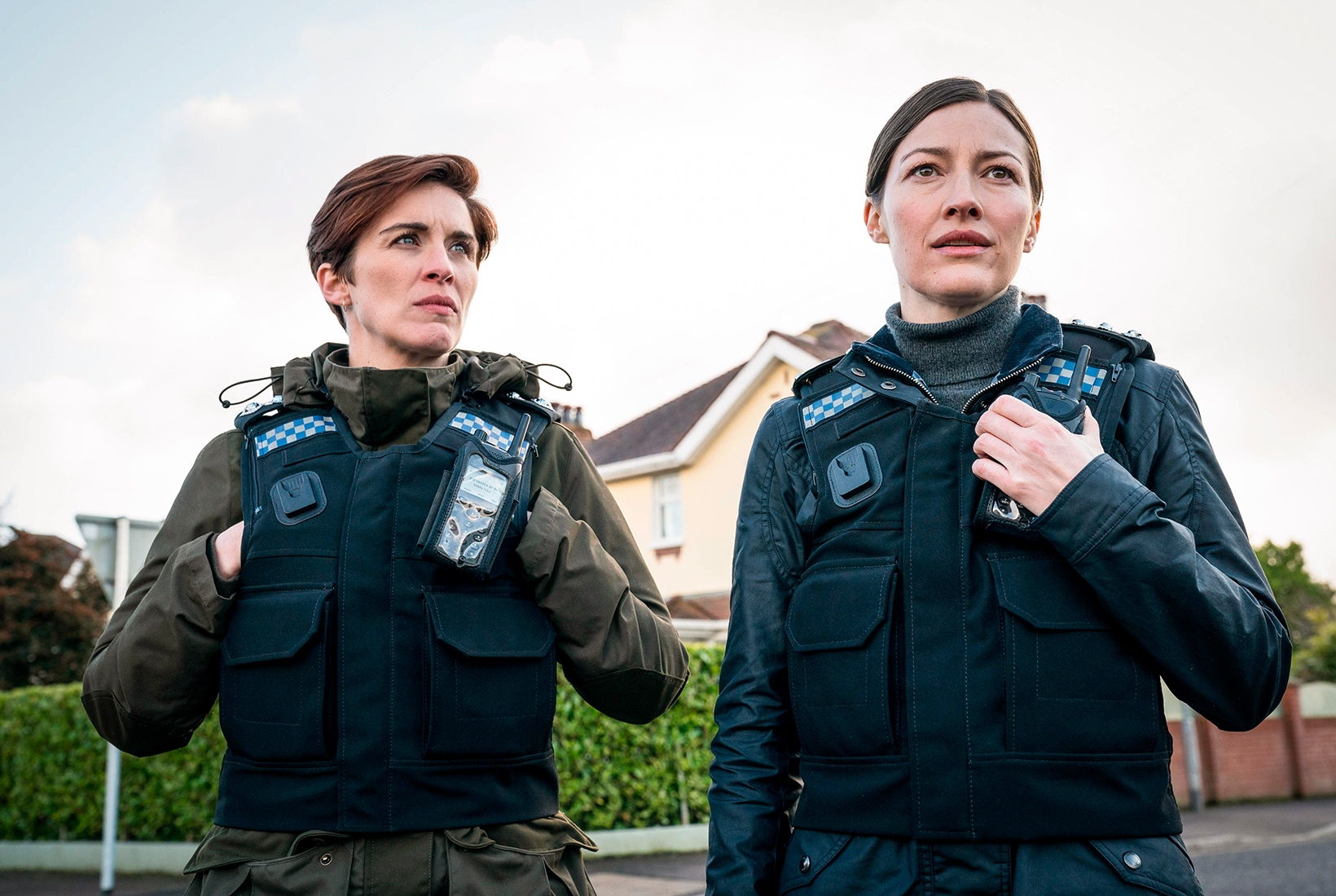When a drama begins with news of a ‘Chis handler’ receiving ‘intel graded A1 on the matrix’ that causes a ‘conflab with the SFC’, it can mean only one thing: you’re watching a new series of Line of Duty. And just to confirm it, shortly afterwards a bunch of armed police carried out a raid that didn’t go to plan — possibly because it was being led by a bent copper.
As ever, too, there’s a big name playing the potential wrong ’un, with Kelly Macdonald (Trainspotting, No Country for Old Men) guest-starring as DCI Jo Davidson, leader of the Murder Investigation Team. More unexpectedly, Jo’s underlings include Kate Fleming (Vicky McClure), who’s left the anti-corruption unit AC-12 — although maybe not for long, given that Sunday’s episode was largely concerned with getting the old band back together.
About a third of the way through, the heretical thought crossed my mind that Line of Duty was running out of steam
Its other two members, admittedly, didn’t start off in great shape. Following hints in the last series that he mightn’t be the toweringly moral figure we’d always imagined, Ted Hastings (Adrian Dunbar) was just about hanging on at AC-12, while also sulking about not being invited to top-level meetings any more. His lieutenant — trusty or otherwise — Steve Arnott (Martin Compston) was reduced to investigating minor irregularities in expense accounts, pausing only to ingest prescription drugs with a level of needfulness rarely seen on TV since the demise of House.
But no sooner had Steve lamented that ‘I’m bored, I need a new challenge’ than he got one, when PC Farida Jatri (Anneika Rose) reported her worries about her boss Jo. That armed raid had been on the flat of a suspect in the inescapably Jill Dando-like murder of a celebrity journalist. On the way, however, Jo stopped the high-speed convoy after she somehow spotted a van down a side street and decided an armed robbery was in progress — which indeed it was, although a suspiciously rubbish one.
As a result, by the time the cops reached the property, the only person there was Terry Boyle (Tommy Jessop), a man with learning difficulties whom viewers with either very good memories or rudimentary googling skills may have recognised as the fall guy for various baddies in series one and five. (In theory, writer Jed Mercurio’s expectation that we have an encyclopaedic knowledge of every Line of Duty character we’ve met since 2012 is both flattering and commendably high-minded. In practice, it can induce a certain unease, even mild panic, that we might be missing something through not having paid enough attention.)
Nonetheless, by the show’s normal standards this was a low-key opener. For one thing, all the main new characters made it out alive. For another, the reassembling of AC-12, with Kate eventually agreeing to spy on Jo, was untypically effortful. About a third of the way through, in fact, the heretical thought crossed my mind that Line of Duty was running out of steam — and even that Steve’s line about being bored of AC-12 came partly from Mercurio’s own heart.
Happily, towards the end the steam was restored, when we discovered that Farida’s motives mightn’t be as pure as Steve thought, what with her being Jo’s embittered ex-lover. Looking back, it was also clear that everything had become suitably unclear, that pretty much anything could happen next — and that Mercurio had once more managed to make us somewhere between keen and desperate to find out what does. Sunday’s episode might have represented an unusually slow trundle to the top of the ride. Yet now that we’ve got there, the ride itself looks like giving us our money’s worth again.
The week’s other big return was of the programme whose online boxset did much to get our family through the first lockdown (or perhaps the second — it’s hard to remember). In its 11th series, Taskmaster could be forgiven for losing a bit of steam itself. After all, how many silly assignments can you give to five comics without déjà vu setting in? Well, the answer turns out to be that we don’t know yet, because Thursday’s tasks, set by Alex Horne and judged by Greg Davies, proved as inspired as ever.
Indeed, one benefit of watching all ten previous series — apart from filling the aching lockdown void — is that you realise how little the format has changed, or has needed to. Right from the start, Davies has pulled off the neat trick of being simultaneously harsh, fair and funny (although on Thursday Jamali Maddix’s cushion-spinning was surely the victim of a grave marking injustice). The casting for each series has been uniformly good too, with not a single contestant failing to have an infectiously good time. Above all, there’s the show’s weirdly uplifting ability to make daft stuff that doesn’t matter at all feel like daft stuff that sort of does.







Comments